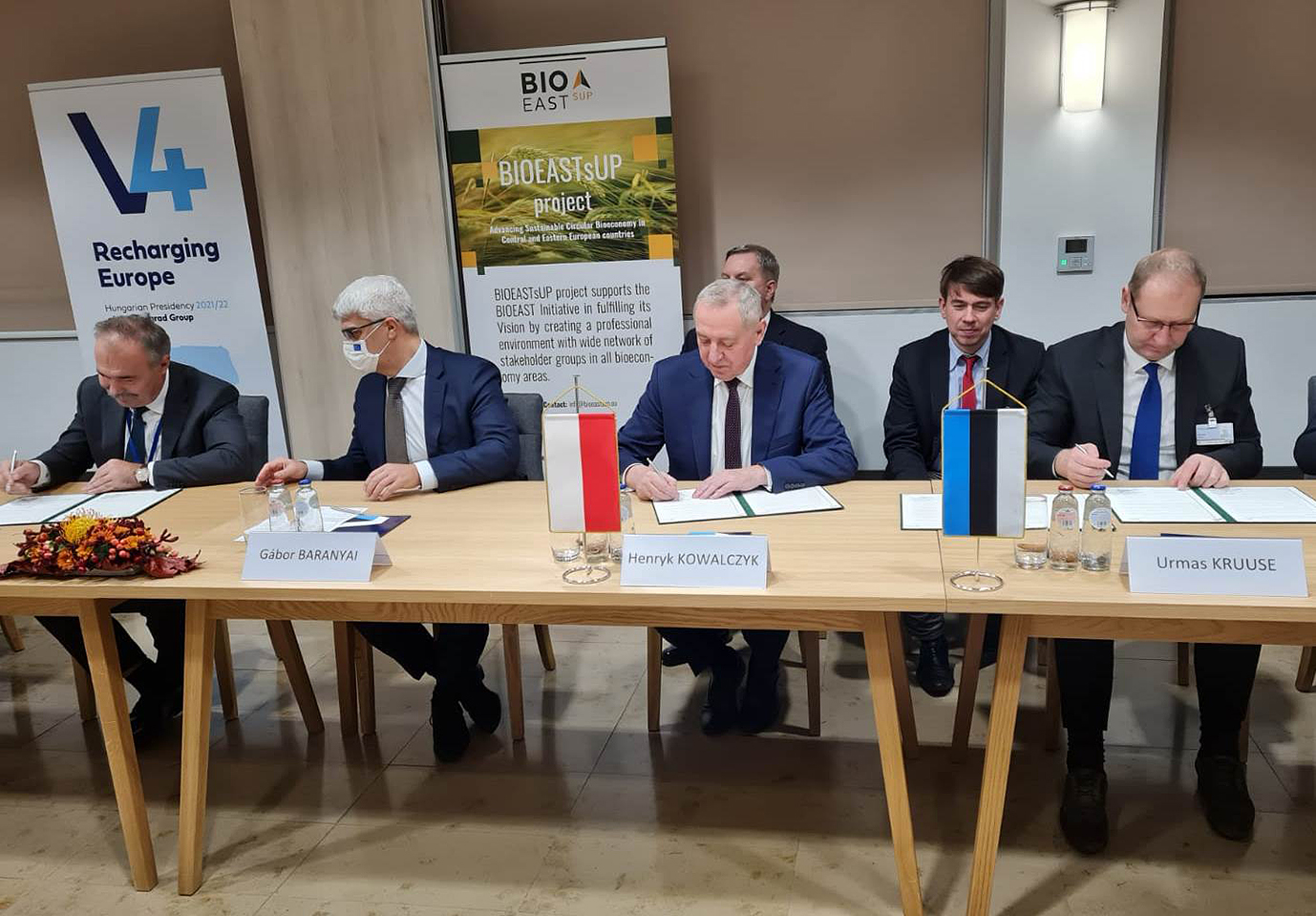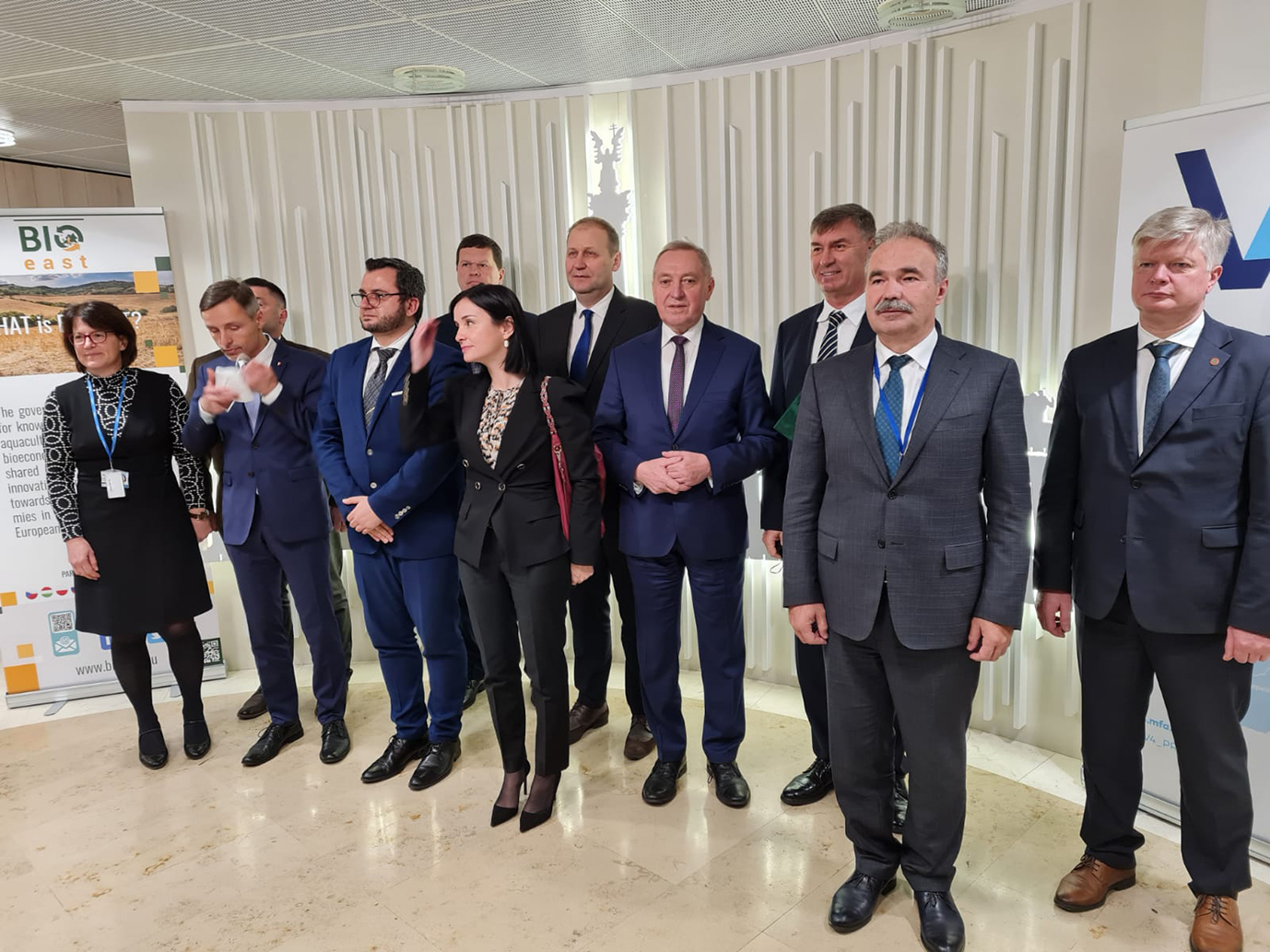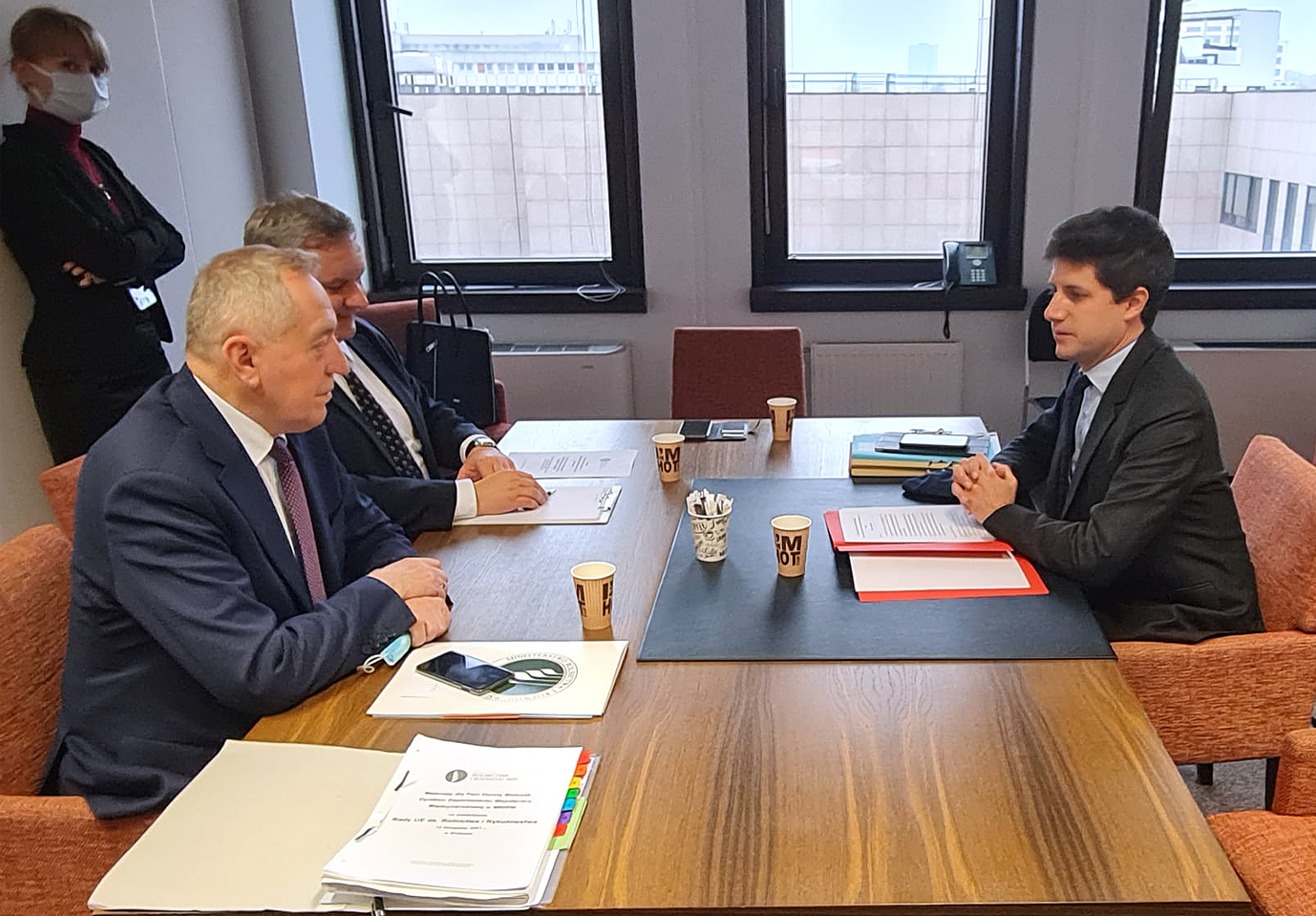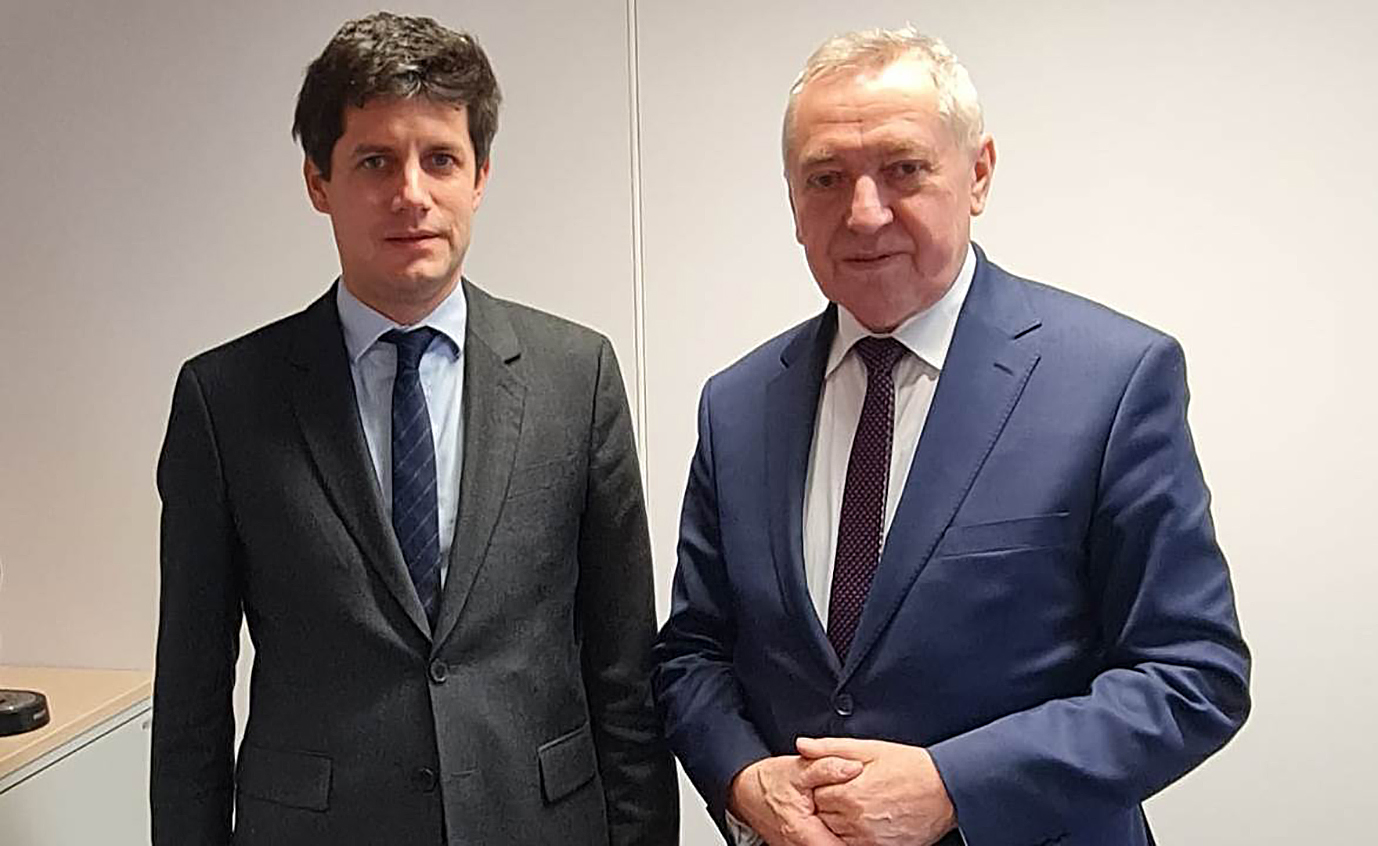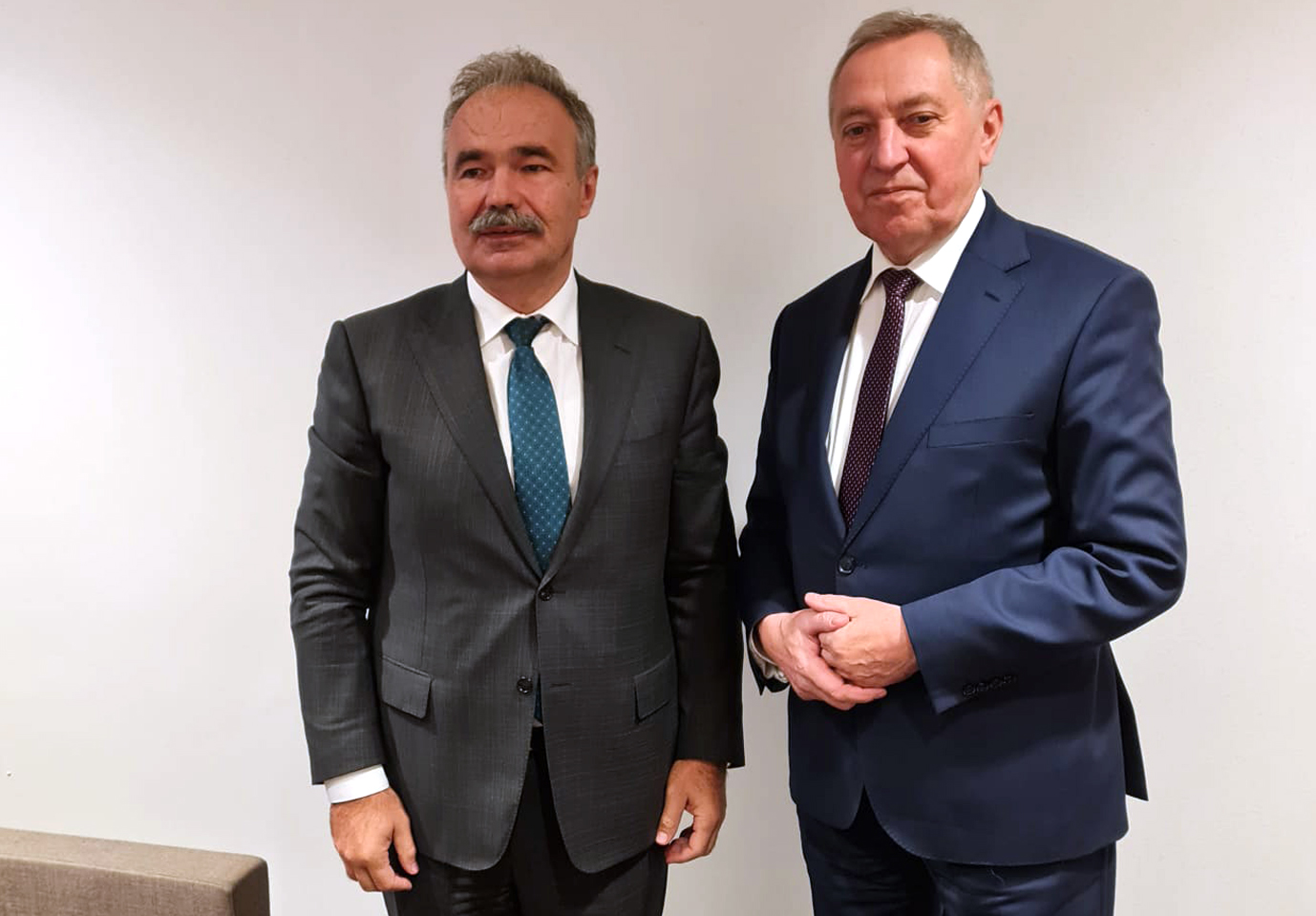Meeting of the EU Agriculture and Fisheries Council in Brussels
16.11.2021
The most important subjects discussed during the meeting of the Council included: the situation in the agricultural markets and the adoption of the Council conclusions on the new EU forest strategy for 2030.

Situation in the agricultural markets
The Ministers heard the Commission’s information and exchanged views on the current situation in the agricultural markets.
The European Commission pointed out that the situation in the agricultural markets in terms of the level of production and prices is generally good, with a few exceptions, such as the pigmeat market. However, at the same time, agriculture is under pressure of both high prices of energy, that influences, inter alia, the prices of fertilisers, and of high costs of transport. In addition, the livestock production sectors struggle with high prices of feedstuffs. As the risk factors for the future stability of the agricultural sector, the EC mentioned, inter alia, weather phenomena; plant and animal diseases such as ASF and avian influenza; Brexit, including possible effects on EU exports in relation with possible British concessions under planned trade agreements with New Zealand and Australia, as well as the implementation of full controls on EU exports to the UK.
As part of the discussion, all Ministers expressed their concern about the impact of the costs of production, in particular, the prices of energy, fuel and fertilisers, on the whole agricultural sector and many of them also expressed their concern about the impact of the prices of feedstuffs on the livestock sector. The majority of Ministers also pointed to the difficult, even critical, situation in the pigmeat sector, which struggles with the low purchase prices and the effects of African swine fever, the COVID-19 pandemic and the growing costs of production.
- In Poland, the greatest problems currently exist in the pork and apple sectors – said Deputy Prime Minister Henryk Kowalczyk. The fall in the prices in the pigmeat market coincides with the progressive rise in the prices of basic inputs, including feedstuffs. This prevents the conduction of profitable production and results in farms going out of business.
- The national aid implemented in Poland is insufficient in the situation of the prolonged downturn in the pigmeat market. Therefore, it is necessary for the EC to implement exceptional measures in this sector, as soon as possible – stressed Deputy Prime Minister Kowalczyk. The situation in the apple market in Poland is also very difficult. The prices fell by 40-50% when compared to last year. It is reasonable to take intervention measures aimed at stabilising the difficult situation in this market.
- A huge problem for farmers is the continuing rise in the prices of fertilisers. The fertiliser crisis will result in the rise in the prices of food which could threaten food security in the EU – said Deputy Prime Minister Kowalczyk. He appealed to the EC to take specific measures aimed at stabilising or temporarily compensating for the high costs of fertilisers, which will translate into stabilisation of the prices of inputs for farmers and the prices of food.
Despite the appeals from the Ministers, the EC again refused to intervene in the pigmeat market. The Commission acknowledged that the situation in the pigmeat sector is particularly difficult, but activating intervention instruments would be the wrong signal to the market. It reiterated that the Member States have the possibility to use measures under state aid and rural development. Referring to the high prices of energy and fertilisers, the EC stressed that according to the European Central Bank’s forecast they are temporary. It mentioned the discussion on the prices of energy at the meeting of the European Council and the indication by the EC of a set of existing tools allowing to respond to these problems.
As part of the item regarding the situation in the agricultural markets, the Ministers also examined a note from Lithuania on the crisis in the pigmeat sector, submitted under any other business. The note was supported by 13 countries, including Poland.
EU Forest Strategy for 2030
The Ministers expressed support for the proposal of a text of the Council conclusion submitted by the Slovenian Presidency. The strategy formulates higher ambition with regard to the contribution of forests by highlighting their multifunctional role in the European Green Deal and in achieving global forestry goals and tasks. During the discussion, the Ministers expressed the need for putting a greater emphasis on the multifunctionality of forests, including their importance for the economic and social dimensions of sustainable development, which, according to them, had not been sufficiently reflected in the strategy. It is particularly important for the Member States to apply the principle of subsidiarity to the issue of forest management, while taking account traditions, specificities and experiences of not only national but also local forestry sectors. The Ministers stressed the exclusive competence of the Member States in the forest policy and the lack of consent for attempts to create bureaucratic and centralised forest policy mechanisms by the EC.
- Poland welcomes, inter alia, the provision of the Conclusions on ensuring a balance among various challenges in forestry regarding environmental, social and economic issues – stressed Deputy Prime Minister Kowalczyk.
For Poland, essential is also the provision in the Conclusions regarding the importance of the competence of the Member States with regard to forestry and forest management.
Any other business
Under any other business, the EC discussed the conclusions from the conference on the “Farm to Fork” strategy, held in Brussels on 14-15 October. The Commission also presented the Contingency Plan for Food Supply and Food Security and the information on the ongoing preparations for the 12th WTO (World Trade Organisation) Ministerial Conference in Geneva scheduled for 30 November – 3 December 2021.
The Hungarian delegation informed about the joint declaration by the Ministers of Agriculture of the Visegrad Group (Czech Republic, Hungary, Poland, Slovakia) and Bulgaria, Croatia and Romania on the need to provide a transparent procedure for the adoption of Common Agricultural Policy strategic plans and to ensure the functionality of the new CAP implementation model. The declaration appeals for the fastest possible completion of the procedural and formal work on the baseline legislation and calls upon the EC to urgently adopt the delegated and implementing acts necessary for the submission of the CAP national strategic plans.
Bilateral meetings
On the sidelines of the Council, Deputy Prime Minister Henryk Kowalczyk met with the Minister of Agriculture and Food of the French Republic, Julien Denormandie. The discussion concerned mainly ensuring a level playing field for European farmers in relation to imports of agri-food products from third countries. The Ministers agreed that this is a very important issue and that the discussion on the “Farm to fork” strategy must be combined with the debate on trade policy. They also agreed on the threat posed by the high prices of fertilisers. They also stressed their will to continue close Polish-French cooperation in the field of agriculture.
Deputy Prime Minister Kowalczyk also met with the Minister of Agriculture of Hungary, István Nagy. The Ministers declared their mutual support in activities in the EU forum and their willingness to develop bilateral cooperation.

